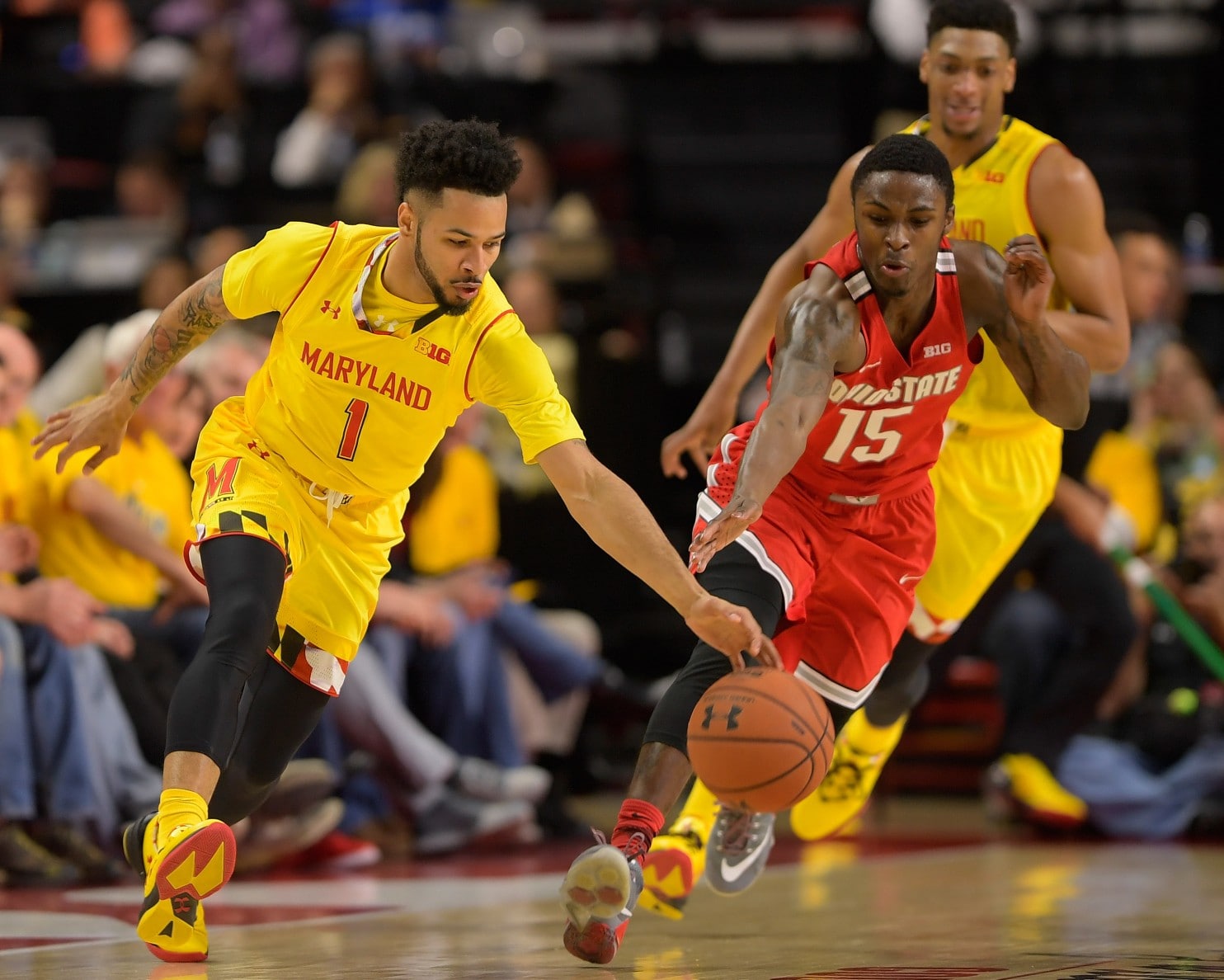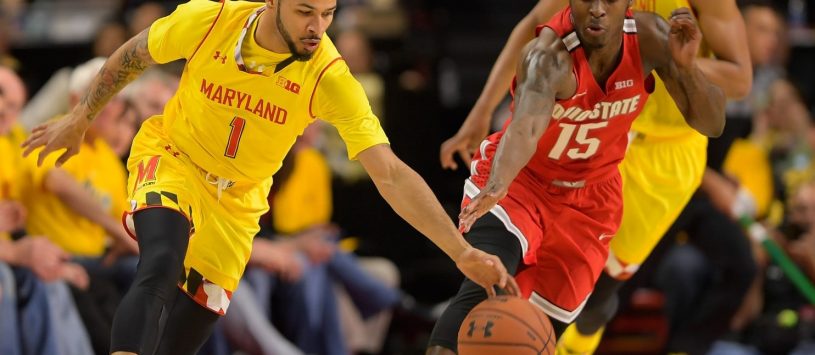On the September night his basketball career ended, Jaylen Brantley arrived at his mother’s home in Springfield, Mass., for a family dinner that seemed to have only one rule: There would be no discussion of the sport that had defined his life for 24 years.
They would not talk about Brantley’s obsession with basketball from the time he was a toddler — one of his first words muttered was “shooting” — through his rise as a high school prospect in the Boston area. They would not talk about his nomadic path through college basketball, which took him from Marshall to a junior college in Texas to Maryland and finally to Massachusetts, where he transferred for his final year of eligibility to be closer to home this past spring.
 And they certainly wouldn’t talk about the news that was delivered earlier that afternoon, when a doctor at Massachusetts General Hospital told Brantley that he had hypertrophic cardiomyopathy, a condition in which heart muscles become abnormally thick and can make it difficult for the heart to pump blood. Brantley stood stone-faced as the doctor explained this would end his playing career.
And they certainly wouldn’t talk about the news that was delivered earlier that afternoon, when a doctor at Massachusetts General Hospital told Brantley that he had hypertrophic cardiomyopathy, a condition in which heart muscles become abnormally thick and can make it difficult for the heart to pump blood. Brantley stood stone-faced as the doctor explained this would end his playing career.
“I didn’t know what to say,” he said. “I was really just confused of how fast the game was taken away from me.”
In the days after, as Brantley began to comprehend his new reality, he was grateful just to be alive. He was also struck by the fact that had he not transferred to U-Mass. last spring, he might never have known about a condition that could have killed him. It was first discovered through an electrocardiogram (EKG) test by U-Mass. team physicians during a routine physical before the start of preseason practice.
Brantley also found that his condition was at the center of what has become a national debate. U-Mass.’s physical screening protocol requires that all athletes receive an EKG test, which evaluates the electrical activity of the heart, but that is far from the norm in major college athletics.
According to the NCAA, roughly half of the 65 schools in the Power Five conferences conduct EKGs. The NCAA’s chief medical officer, Brian Hainline, recommended in 2015 that all college basketball players be given EKGs — only to later backtrack on that announcement and draw protest from more than 100 team physicians across the NCAA.
[Jenkins: College sports’ real criminals: Those getting rich under the guise of ‘amateurism’]
Sudden cardiac arrest among NCAA athletes has long been a simmering concern; it certainly has been in the national conscience since 1990, when Loyola Marymount star Hank Gathers collapsed during a game and died of a heart attack resulting from hypertrophic cardiomyopathy.
Advocates believe EKG testing is a crucial and accurate measure to prevent sudden cardiac arrest; opponents argue that many schools do not have the resources to commit to accurate EKG testing. The American Heart Association has not endorsed uniform testing because sudden cardiac arrest among young athletes simply isn’t prevalent enough.
“Some places don’t have the resources to read [EKG’s] correctly. If you read them correctly, there’s a very low false-positive rate. You’re still going to miss some things. But some people and places just don’t have the resources to do that,” said Kim Harmon, who is the head physician for the University of Washington football team and has researched sudden cardiac arrest for much of her medical career. “The fact of the matter is it is really, really unlikely that you’re going to find something that is going to kill people” based off only a patient’s history and a routine physical.
The risk of sudden cardiac death in Division I men’s college basketball players or African American men’s basketball players at any division is as high as 1 in 5,200, according to a 2016 report commissioned by the NCAA that was led by a task force of cardiovascular and sports medicine experts, student-athletes and athletic trainers and published in the Journal of American College of Cardiology. That report also found that 1 in 9,000 men’s basketball players have an exertion related sudden cardiac arrest risk, which is higher than any other athlete group
“If you think it’s important or you have a high-risk group, you need to do more advanced screening,” Harmon said.
But the report stopped short of recommending that all schools use EKGs to test athletes, underscoring the debate over the tests. Another contentious issue is the risk of false positives on EKG screening.
In a statement to The Washington Post this past week, Hainline stood by the report.
“The NCAA believes that the pre-participation exam should be consistent with” the 2016 report it commissioned, the statement read. “This document provides a pathway for a comprehensive cardiac evaluation but also recognizes that electrocardiogram screening remains an imperfect science.”
Brantley has educated himself more on those risks since his diagnosis, and other people with the condition have reached out in support. Brantley did not undergo EKG testing at Maryland, where he was a backup guard for two seasons, and has not experienced any symptoms over the course of his life. Maryland officials did not specify to The Post why they have not adopted EKG testing as part of their initial physical protocols, but athletic department spokesman Zack Bolno said in a statement that the school’s athletes could be referred for compulsory heart testing if their screening warrants such a step.
“All of our student-athletes go through a comprehensive medical examination and follow-up visits with our team physicians. As medically warranted, diagnostic testing will be conducted for any of our student-athletes,” Bolno said.
It took nearly two weeks and an exhaustive process in September for Brantley to receive a diagnosis; after the EKG at U-Mass. revealed an irregularity, he was referred to a cardiologist at Holyoke Medical Center. The cardiologist suspected he had hypertrophic cardiomyopathy, but it wasn’t until Brantley received an ultrasound and MRI exam on his heart at Massachusetts General that the condition was confirmed.
“My heart sunk, and tears just streamed down my face. My soul was just ripped out of me because I knew his dream could possibly be over,” said Brantley’s mother, Angela Cayode. “We are forever grateful for U-Mass. for giving him the test. There are no hard feelings with Maryland. We loved Maryland. He had a great time at Maryland. We feel like Jaylen coming to U-Mass., it was a godsend because if he didn’t come to U-Mass., we wouldn’t have known.”
Brantley said he believes that all universities should use EKG tests for athletes, and he hopes that his circumstances will help bring awareness to a long-standing medical conundrum in the NCAA. In the meantime, he remains on scholarship at U-Mass. and has taken a leadership role with the program, which he hopes will jump-start a career in coaching. It has been difficult over the past few weeks for Brantley to watch the Minutemen begin their season without him.
“But everything happens for a reason,” he said. “I think this happening really saved my life.”

